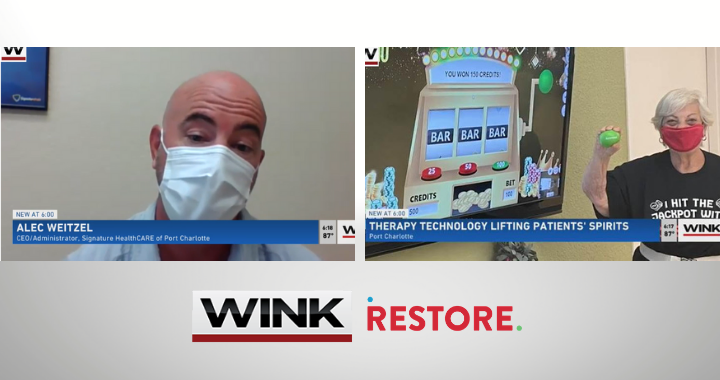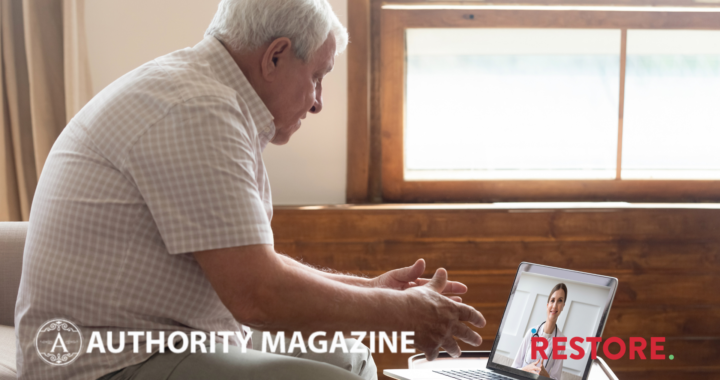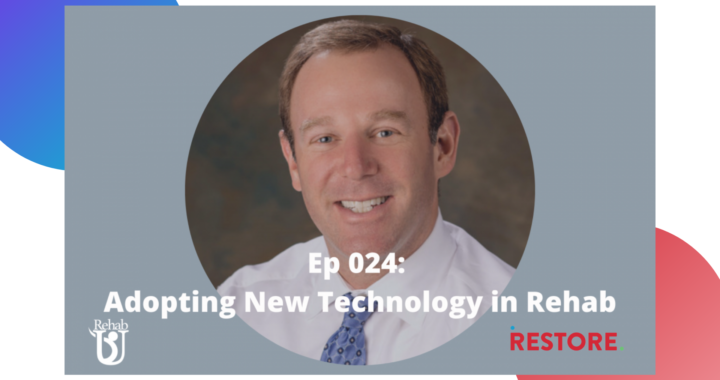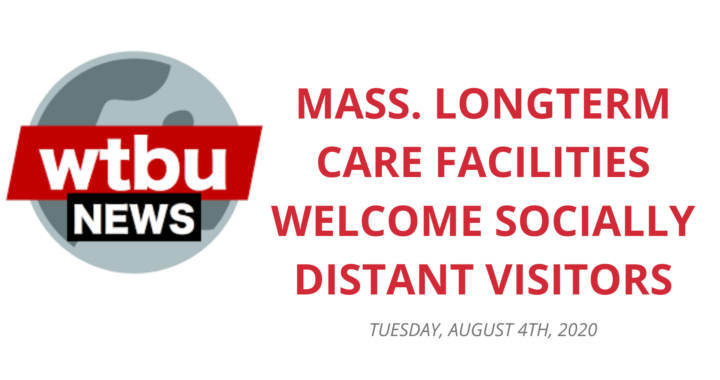Can you share the most interesting story that happened to you since you began your career?
At one of the very first skilled nursing facilities to implement RESTORE, I was introducing the gaming platform to an 88 year-old patient who was recovering from congestive heart failure. She wasn’t enthusiastic about video games, but was a good sport and willing to try with a goal to increase her standing activity tolerance. 1 minute into the game, her two great-grandchildren ran into the room shouting “Grandma, Grandma we want to play!” She sat down with a huge smile on her face. She handed over the controls to one of the grandsons, while the other sat patiently on her lap before taking his turn. The boys’ mother came over to me and softly asked “what is this and how do I get it for my home?” Before I could answer, she continued with tears in her eyes “my son sitting on her lap is autistic and this is the first time he’s ever entered the room with my grandmother let alone allowed her to embrace him.”
To have played any part of that magical moment was incredible and to this day motivates me to do everything I can to help customers and clients to experience successes both large and small.
...
Can you share a few ways that Telehealth can create opportunities or benefits that traditional in-office visits cannot provide? Can you please share a story or give an example?
I was assisting a clinician during a telehealth session with a patient who had suffered a stroke. The patient was part of a large, supportive family who lived near Atlantic City, NJ. He was an avid gambler and the family would make a monthly visit for a weekend of slot machine play. RESTORE-Skills has a game called Jackpot, which is a virtual slot machine with settings that can be adjusted based on a patient’s physical and cognitive ability level to ensure success. The therapist coordinated a virtual session to include the patient’s brother and sister. Initially they observed the session and offered encouragement to their loved one as he played his favorite game. They began to reminisce about the last time they were in the casino together. Then it clicked for the sister as she noticed an improvement in how her brother was moving his arm while pulling the lever of the slot machine (which moved to the opposite side after each pull to challenge his range of motion and coordination). “That’s great exercise and you’re doing something you love at the same time. This makes me so happy” she exclaimed. The therapist was then able to provide the family members with a code that enabled them to all play together on the same screen in a five minute slot tournament. After the session was complete, the therapist noted that it was the longest the patient had stood while performing activity and that it was clear interactivity from his family was key in providing added motivation.
Telehealth evolved out of the need for greater access, flexibility, and demand. Access to quality health providers. Access to reliable transportation. Flexibility for busy schedules/lifestyles. Providers can better meet the increasing demand for patient visits when provided virtually from a single location.
Covid-19 has certainly accelerated the use and scope of telehealth services. At RESTORE-Skills, early on we identified that perhaps an even greater risk than covid for our clients was the challenge of mitigating the risks of social isolation for patients as visitation in senior living came to an abrupt halt. We introduced a new feature, RESTORE-Together, which enabled clinicians working with a patient in their room to invite family members, friends, or even connect with other patients/residents during treatment sessions. They were able to offer visual and verbal encouragement, as well as interactively play on the same screen from the safety of their own homes or rooms.



